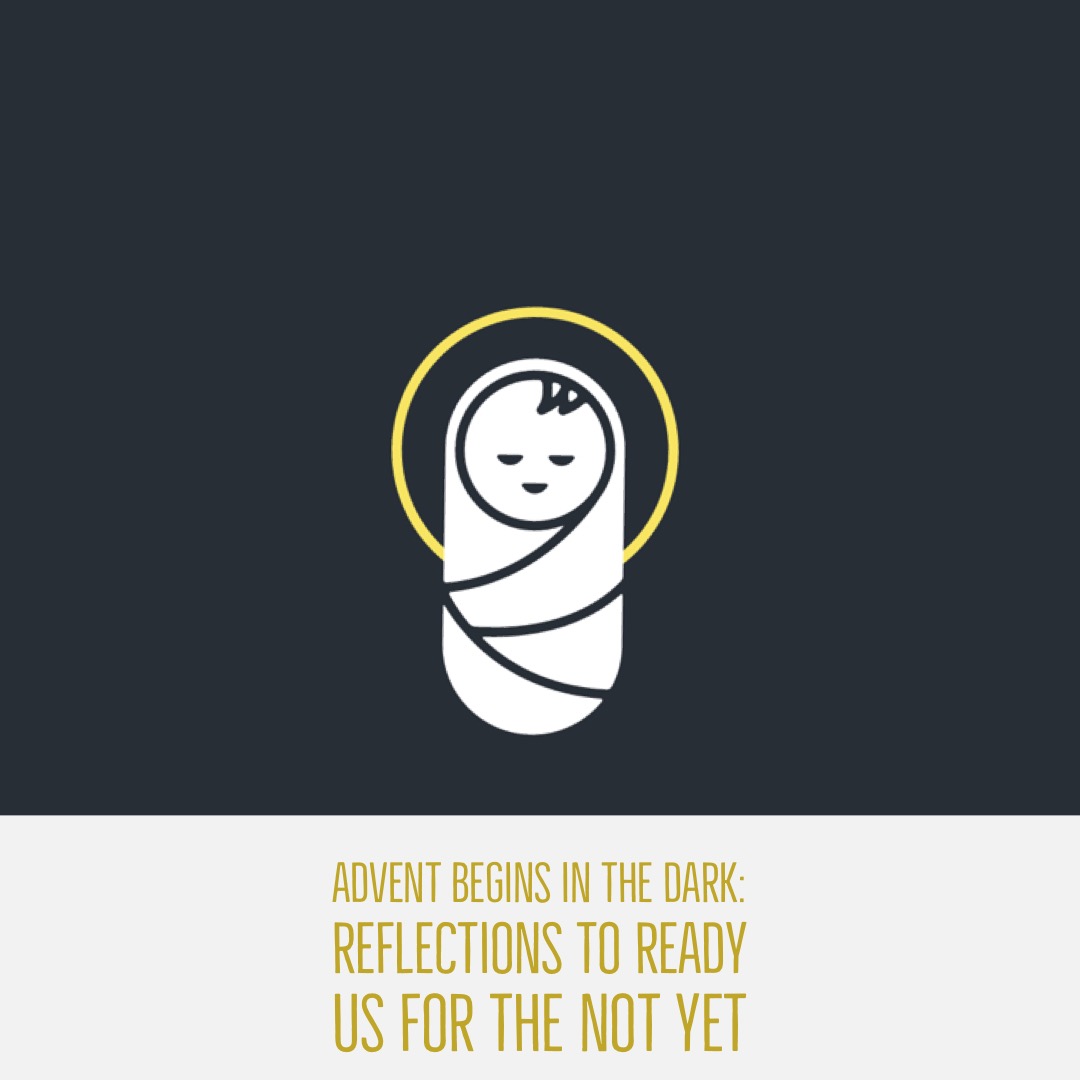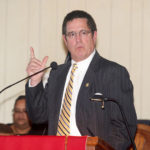

Says Fleming:
“Advent is designed to show that the meaning of Christmas is diminished to the vanishing point if we are not willing to take a fearless inventory of the darkness.”
We often understand Advent as a season of preparation for Christmas and our celebration of Jesus’ birth. And surely it is that, in part. In this season, our lectionary readings, typically feature passages from the Hebrew prophets that we have come to believe point to the birth of Jesus. Those scriptures remind us that what we will celebrate at Christmas is the fulfillment of God’s promises of old.
And so, we hear these words from Jeremiah:
“The days are surely coming, says the LORD, when I will fulfill the promise I made to the house of Israel and the house of Judah. In those days and at that time I will cause a righteous Branch to spring up for David; and he shall execute justice and righteousness in the land. In those days Judah will be saved and Jerusalem will live in safety.”
Jesus, we believe, was that righteous branch.
Jeremiah was writing after the fall of Israel and Judah at the hands of the Babylonians, after many of the people had been carried off into captivity. He was writing in a time of incredible despair for the people of Israel, when there was great uncertainty about God’s faithfulness to them. I wonder if some didn’t even come to doubt God’s very existence. Jeremiah is saying, God isn’t finished with us yet. Don’t despair.
The place of passages such as this in our lectionary for this season is a reminder that when we celebrate Jesus’ nativity in a few weeks, we are not just celebrating the birth of a precious baby in whom love is incarnate. We celebrate, as well, the fulfillment of God’s promises to Israel and the vindication of Jeremiah’s hope.
Of course, the idea that Jesus fulfilled or completed God’s promise is an odd one. “In those days,” Jeremiah wrote, “Judah will be saved and Jerusalem will be safe.” Clearly, however, the Jews were not saved and Jerusalem was still not safe as a result of Jesus’ life, death and resurrection! Jesus torturous death at the hands of the Roman authorities was itself testimony to that! And after Jesus’ resurrection, they remained in solidly in control.
We need to be reminded of all that to make any sense at all of our gospel reading this morning. We heard the last verses of Luke’s version of what is sometimes called Jesus’ apocalyptic discourse or the synoptic apocalypse because some version of it appears in Matthew and Mark as well. Jesus had said that one day the Temple would, in fact, be no more and was asked, “When will that be and how will we know?”
In response, he spoke of wars and insurrections, nation rising against nation. And before all that, his followers being arrested and persecuted. He said they would see Jerusalem surrounded by armies and when they did they should flee to the mountains. Then in the words we heard just now, he suggested that the signs of this tragedy would not just be historical or political, but also, if you will, cosmic. “There will be signs in the sun, the moon, and the stars” and a confusing “roaring of the sea and the waves.”
Jesus, was surely, taking a fearless inventory of the darkness, as Rutledge has counciled us to do.
And indeed, all this violence, and destruction, and confusion is not to be feared, Jesus says. For at the end of it all, he says, you will see the son of Man coming in a cloud with power and glory and when all this begins to take place, stand up and raise your heads, because your redemption is drawing near.”
The presence of this passage is a reminder that Advent is not only about preparing for our celebration of Jesus birth; more profoundly it is about our preparation for his 2nd advent, his 2nd coming.
All this, of course, seems very strange to us. Here we are preparing to celebrate birth of a precious baby and the gospel reading hits us with its talk of violence and persecution and cosmic upheaval—and all of these understood as “signs” of something or other, some end of the world as we know it.
Surely, we are not to take all this talk of signs in the heavens, an end to the world as we know it and a 2nd coming of Jesus seriously! Haven’t those across the years and even today who have thought they could read the signs and predict the time for all this discredited the whole approach, the worldview we might say, on which all this apocalyptic talk is based. Aren’t we wise to “demythologize” passages like this—as biblical scholars did for decades—rather than to take them literally?
I will not tell you that I think we ought to take them literally. But I do think we are wise to take passages such as these very seriously. There is a wisdom in them that we ignore at our peril. Above all there is good news in them that can be for us a source of great joy; good news that can inspire in us hope sufficient to every challenge.
The wisdom in them is this:
God is not finished yet.
God is not finished with this world that he loves—not yet.
God is not finished with you and I—not yet.
God’s promise to us is the making of all things new; the wiping away of every tear from our eyes. We shall have new bodies—one’s not subject to the ravages of disease. The hungry—for food, for love, for justice—shall be filled. Swords will be beaten into plowshares and we will study war no more because we will be reconciled to our enemies and they to us as we are all reconciled to the One who is God and Parent of us all.
Advent is the season of hope.
It is a season to be reminded that God is not finished—not yet. That the triumph we celebrated by faith last week, will one day require no faith at all! There is no sorrow or suffering so intense we cannot bear it if we have hope. There is no disappointment or failure that so challenges our dreams for ourselves that we simply cannot go on if, nevertheless, we still have hope. There is no threat to our security so deadly that we cannot respond out of love rather than fear so long as there is hope. There is no betrayal of our trust so ghastly, no sin so abominable that we cannot escape with a measure of our integrity of intact, if, despite it all there is still some reason, even the smallest reason, for hope—because God is not finished; not yet.
Where there is hope the human spirit can bear all things. Hope in something other than ourselves, something or someone beyond ourselves. Hope in some source of righteous power that transcends the winds of change in our world and in our own weak and wavering souls. With such hope the human spirit can bear all things and go on, in faith and with love.
But where there is no hope…perish the thought.
Advent is the season of hope. It is a season to be reminded that we live always between two advents: the advent of Jesus among us as the Incarnation of God’s love and first fruits of the fulfillment of God’s promises to us and the advent of that Kingdom of justice, mercy, joy, and peace over which he will rule.
This new creation is God’s, not ours. It does not depend on our faithfulness, our goodness, our wisdom, the success of our endeavors or, thank God, our politics. It is the gift of God to us and for us that is yet to come.

This reflection comes from my friend Dr. Barry Penn Hollar. A fellow UVA alum, Barry is the Professor of Religion and Philosophy at Shendandoah University.
